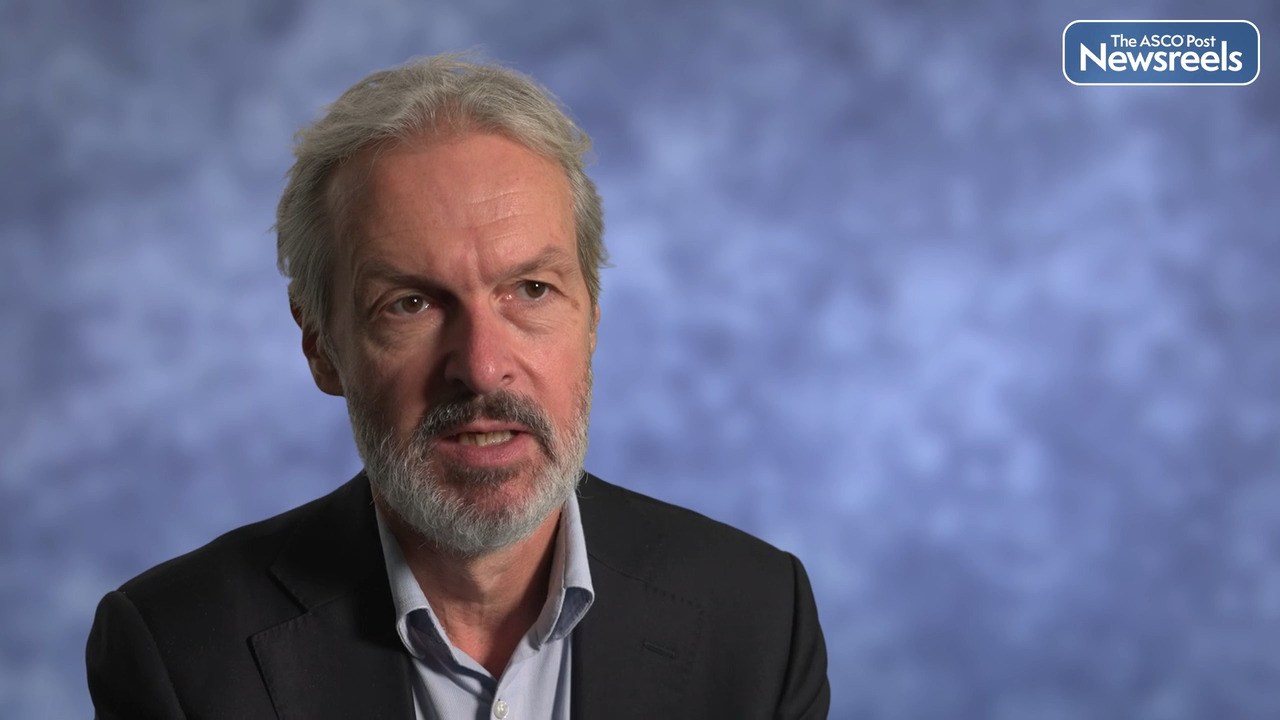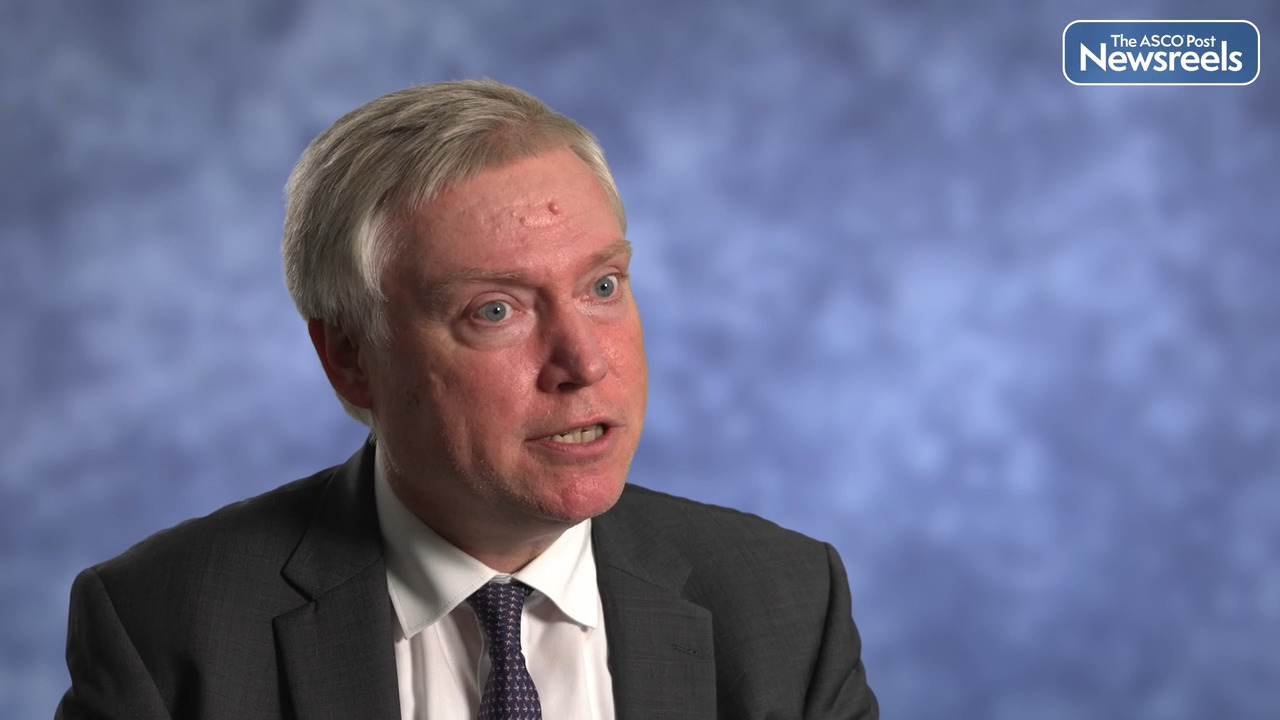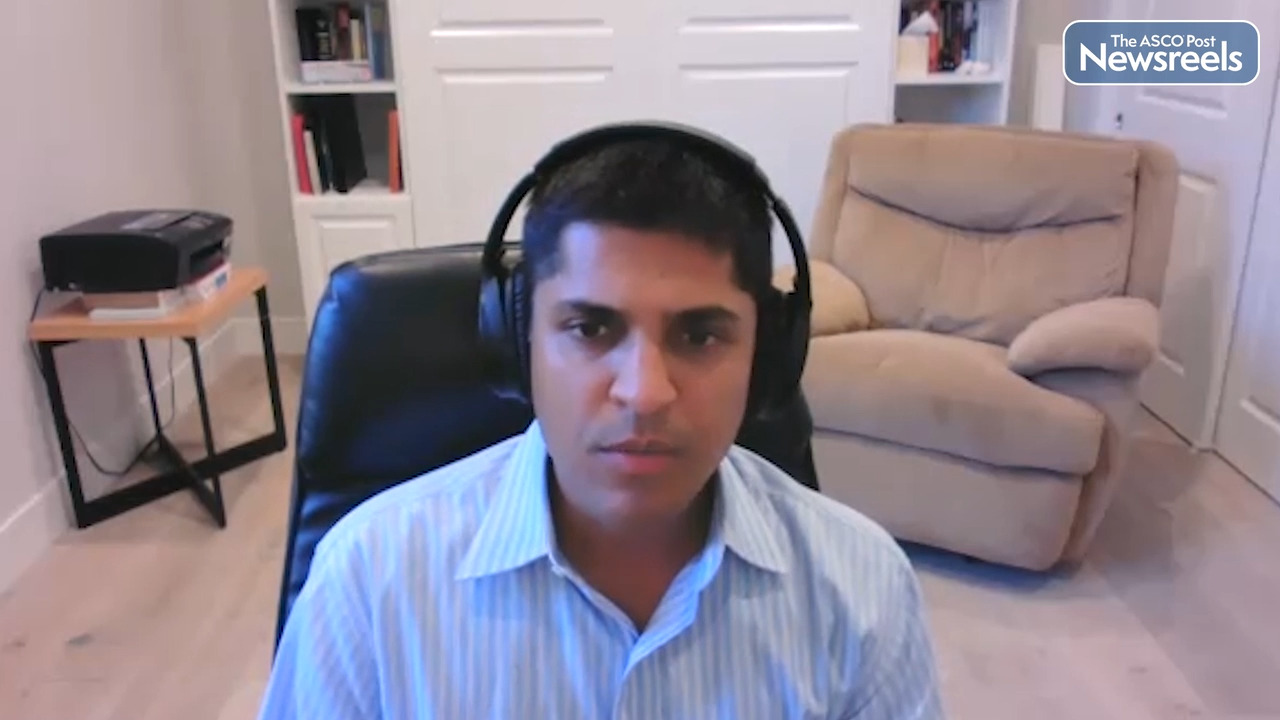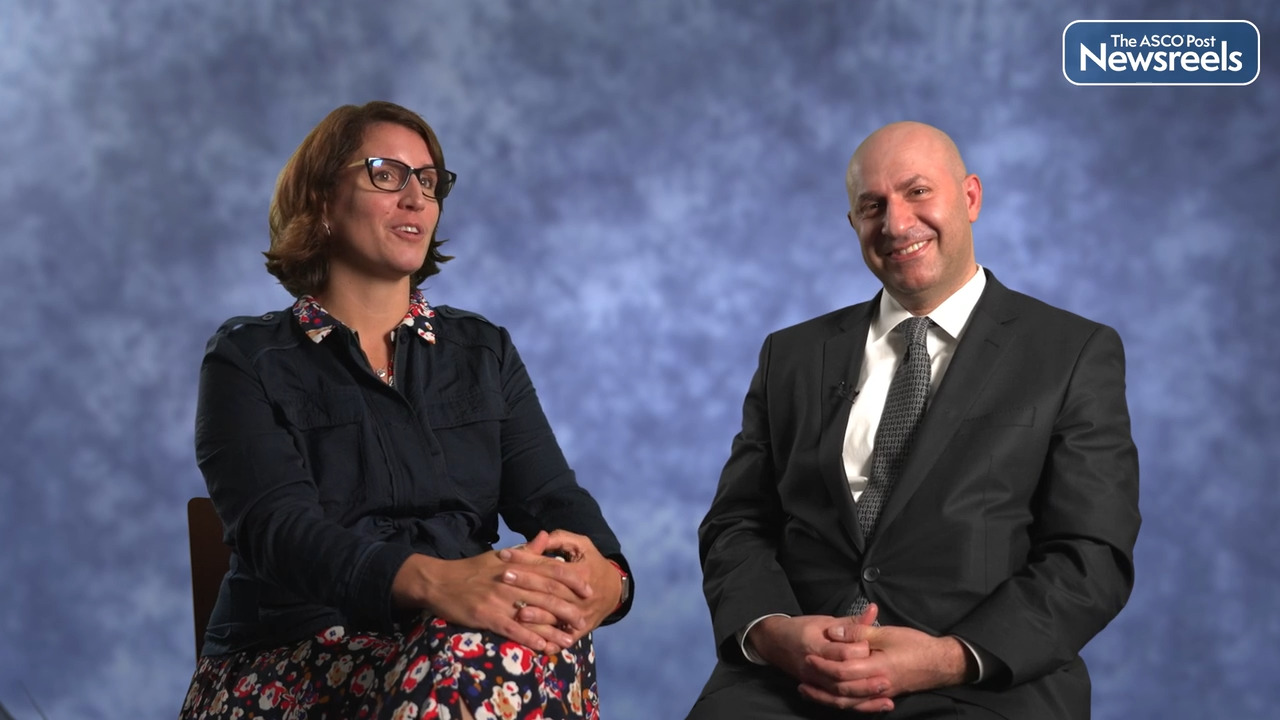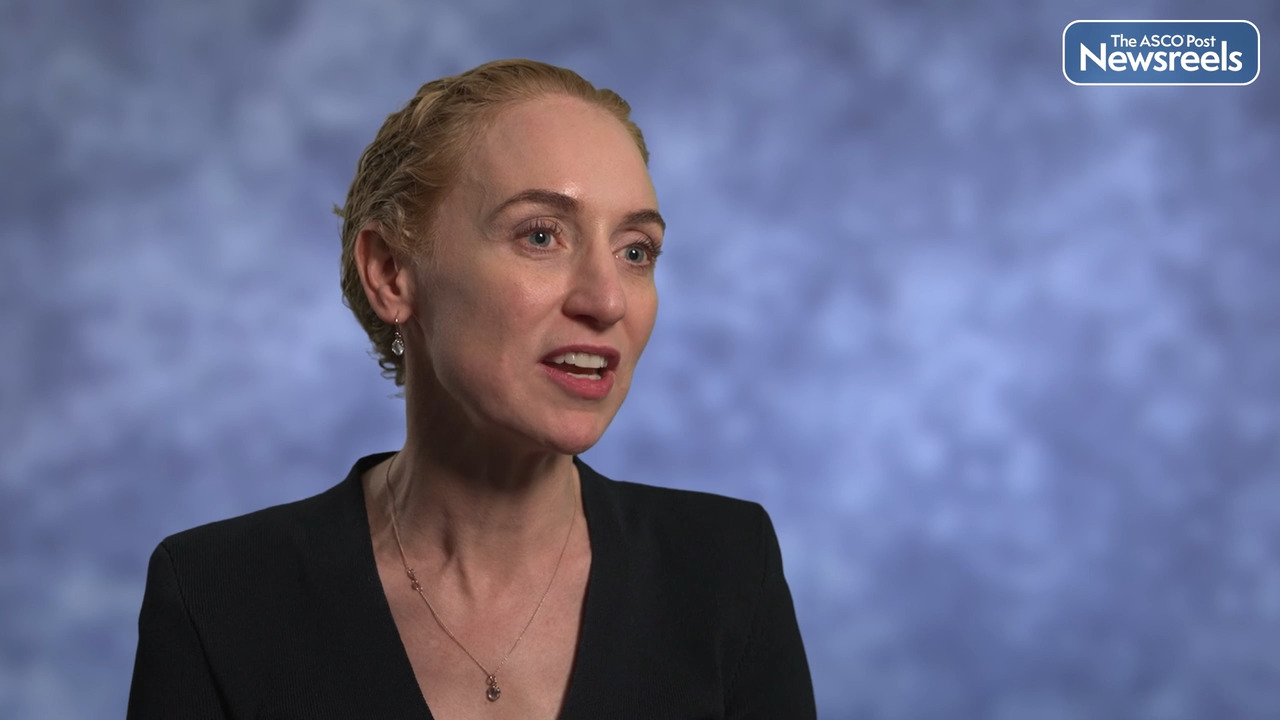Transcript
Disclaimer: This video transcript has not been proofread or edited and may contain errors.
The purpose of the SYNERGY trial was to evaluate a new immunotherapeutic combination to increase the benefit to chemoimmunotherapy with PD-1/PD-L1 immune checkpoint blockers in triple-negative breast cancer. One of the strategies to enhance the immune response is to target the immunosuppressive tumor microenvironment, and one of the mediators involved in this immunosuppression in the TME is adenosine. Adenosine is produced by the conversion of ATP as a result of cell death, hypoxia, or cytotoxic stress. Cells release ATP that induce co-inflammatory, but tumor are proficient at converting this proinflammatory ATP into immunosuppressive adenosine. Two enzymes, CD39 and CD73, are involved in the convention of ATP into adenosine.
In triple-negative breast cancer, we have previously demonstrated that CD73 is overexpressed and associated with a worse outcome, therefore, we aim to evaluate the combination of an adenosine-targeting agent with an anti-PD-L1 and chemotherapy in triple-negative breast cancer, and we developed the SYNERGY trial.
In this trial we have test the addition of oleclumab, that is a monoclonal antibody targeting the enzyme CD73, with the combination of chemotherapy with paclitaxel and carboplatin and an anti-PD-L1, durvalumab. That trial was for patients in first-line therapy. It was a randomized phase II, unselected triple-negative breast cancer. So both patients with PD-L1 negative or positive tumor. PD-L1 and CD73 immunohistochemistry expression were assessed on the baseline tissue and were used as stratifications factors. In both arms, patients received 12 weeks of chemotherapy with paclitaxel and carboplatin. In one arm they received the double immunotherapy with durvalumab and oleclumab, and in the other arm, they received only durvalumab. After the 12 weeks of chemotherapy, patients continue with immunotherapy maintenance until disease progression. The primary endpoint was the clinical benefits, so patient incomplete response, partial response, and stable disease at week 24. So 12 weeks after the end of the chemotherapy.
Here at ESMO, we reported the primary endpoint results. 127 patients were randomized and evaluable for these analyses. The clinical benefit rate was 43 persons in the arm with the addition of oleclumab and 44 persons in the arm with durvalumab alone. PFS were similar in both arms. In our cohort, PD-L1 and CD73 expression on the baseline tissue were not predictive of response, and of note, patients with PD-L1 negative response also achieve good responses. We have also patients with long-lasting response in both arms and 9 patients per arm are still under immunotherapy maintenance.
We have also reported preliminary results on adverse events that were similar in both arms, and we noticed that most higher grade adverse events occurred during the 12 weeks with the chemotherapy.
So, here in study, we didn't demonstrate that targeting the adenosine pathway could improve the benefit to immunotherapy in advanced unselected triple-negative breast cancer. But triple-negative breast cancer is a heterogenous disease, both at the molecular level of the tumor, but also regarding the TME. The interactions between the tumor cells and the immune cells are very complex, and we have collected, during the trial, several tumor samples before treatment, under treatment, and also blood samples that will be used in translational research projects.
We hope that this ongoing research will help to better understand the mechanism associated with response and resistance to the combination, and that we will be able to define and characterize the subset of patients that will benefit of this strategy. I hope, also, that this analysis will help us to define new immunotherapeutic strategies for breast cancer patients.
